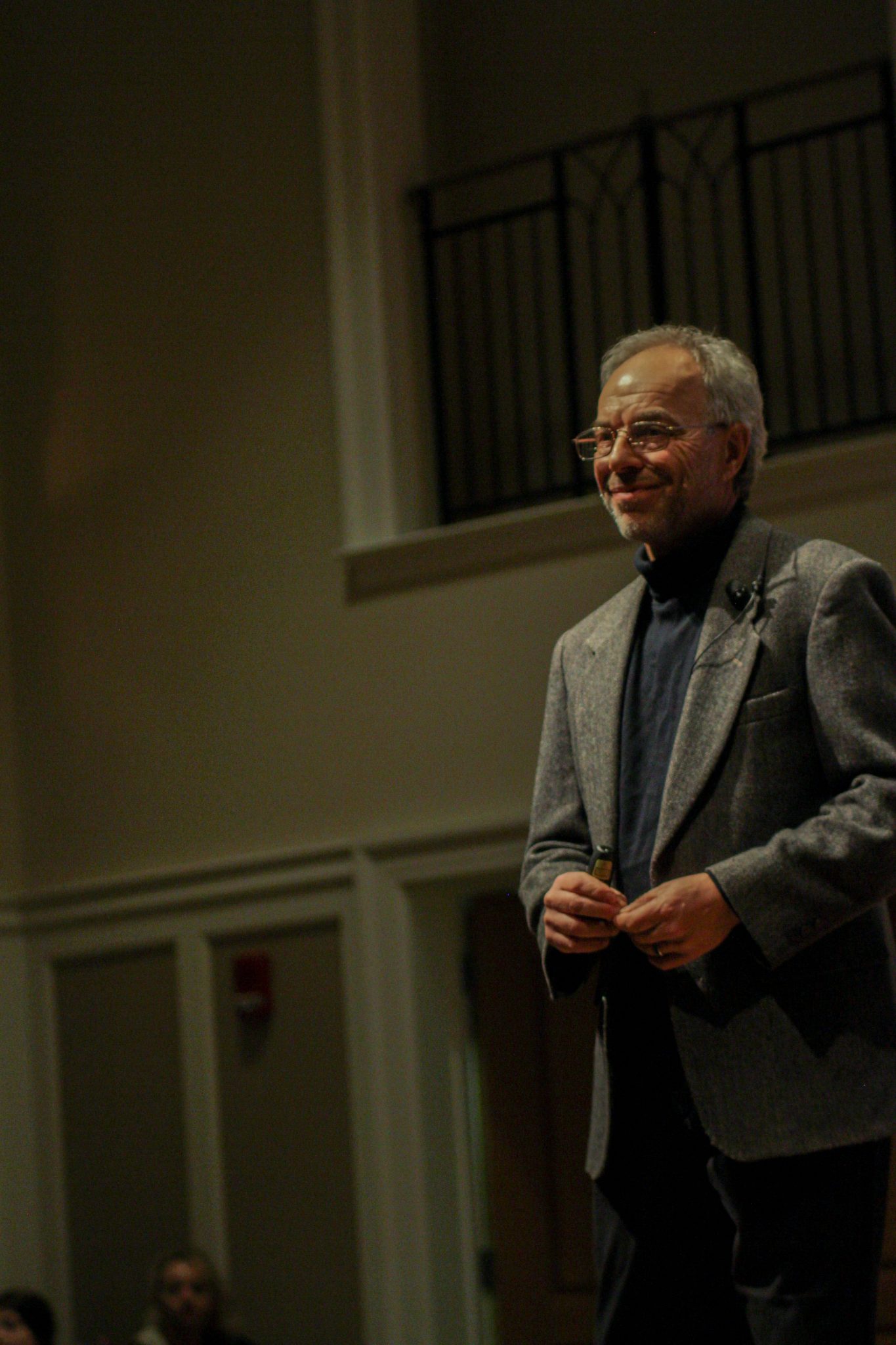Writing Beyond Words: Perspectives on Earth and Humanity with Carl Safina

Award-winning author and conservationist Carl Safina drew laughs from an audience of nearly 200 students, staff, and community members gathered in Kulynych Auditorium when an image of his fluffy, grey dog looking at the camera appeared on the screen behind him.
He opened his public lecture, “Writing Beyond Words: Perspectives on Earth and Humanity” with a relatable question: “Does my dog love me or does she just want a treat?”
Safina’s talk and book signing on Wednesday, February 20 was just one aspect of his three-day visit to campus to conduct Wake Forest’s third annual environment and sustainability writing workshop and public lecture. This annual event creates an opportunity for students, faculty and community members alike to consider important issues like conservation and environmental policy and learn from a renowned author in the field. The first annual workshop was conducted by citizen writer and public lands activist Terry Tempest Williams in 2017, who was followed by biologist and pulitzer-nominated author David Haskell in 2018.
This year’s three-day writing workshop engaged undergraduate and graduate students in environmental writing, teaching them how to accurately communicate science to the public. The course included nearly 25 students of all stripes, including biology graduate students and undergraduate students with majors spanning studio art to political science and international affairs. This year’s enrollment for the workshop was the highest it has ever been. Each evening, Safina discussed both the nuances of strong writing and what is at stake when communicating about the environment.
“Standing up for the facts is a matter of self defense,” Safina said on the first day of the workshop.
Part of the requirement of the 1-credit hour workshop was for the students to attend his public lecture.
During the lecture, Safina drew from his experience traveling the world and writing seven books to talk about the seemingly human emotions of animals. An ecologist, conservationist, and animal lover, he led the crowd through the journeys of different animals as he outlined the ways in which we are more similar than we often think.
“The way he described the amazing abilities and characteristics of animals was an entirely new way of looking at the world around us” said junior Olivia Street.
He began by mentioning the ways humans and animals have evolved overtime to have similar neuron, bone, and brain structures. This then turned into a discussion of wolves with nuclear families, elephants that grieve when they lose one of their own, and albatrosses that travel thousands of miles to feed their young. He drew on everything from the way dogs dream and the way killer whales have recognised and protected humans.
“Love and caring is not new with us and it’s not the thing that makes us human,” said Safina. “We’re not the only ones that care about our mates. We’re not the only ones that care about our children.”
The talk highlighted all of the ways humans and animals are alike; biologically, cognitively, and emotionally. He went on to discuss the ways that we pollute the environment — the very home of the animals whom we say we love and respect.
The audience was silent as Safina returned to the question he posed at the start of his talk — but this time he turned the question to the crowd.
“The question is,” he began, “Are we capable — are our human minds capable — of loving them enough to simply let them continue to exist on Earth with us?”
